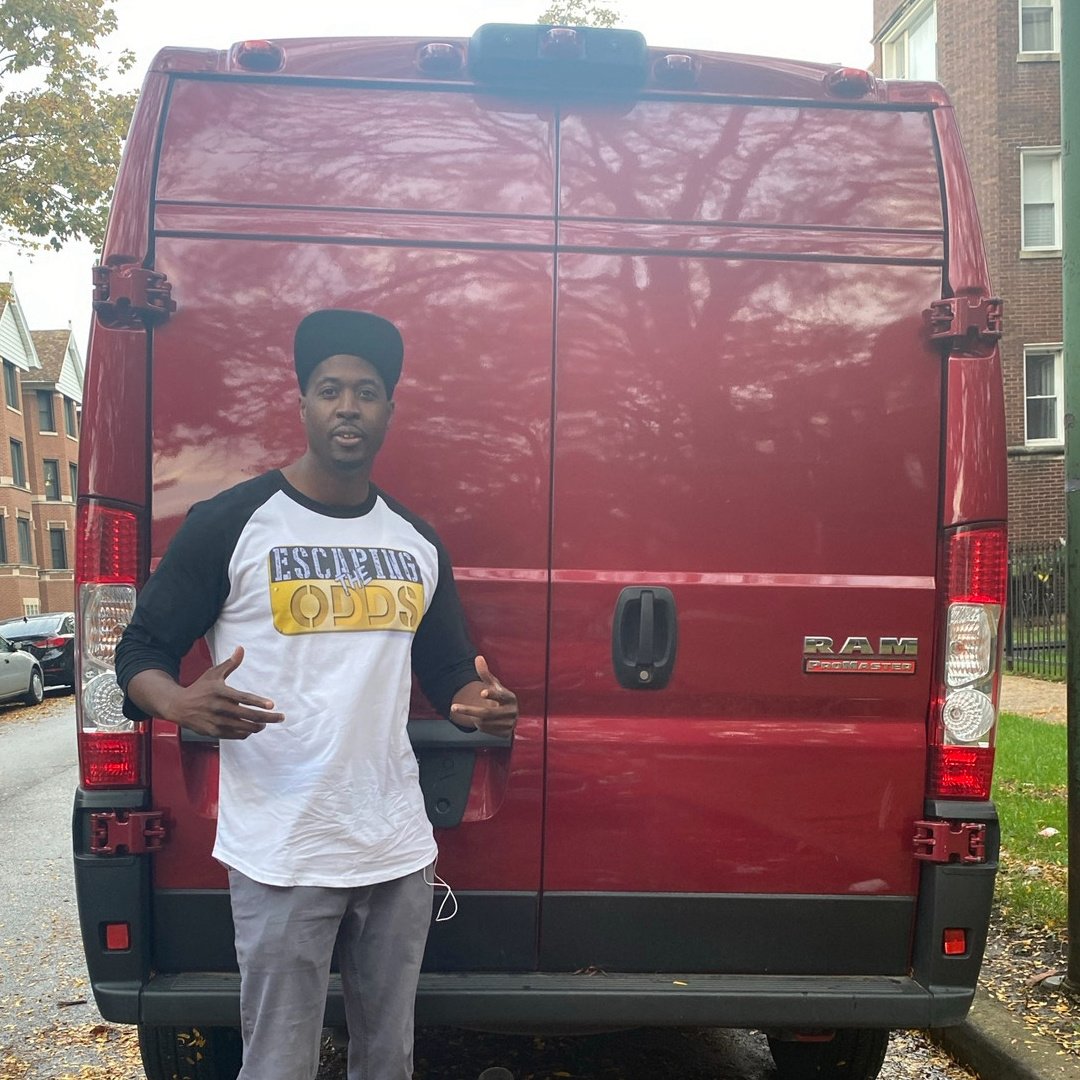
No doubt about it: One of the biggest obstacles many returning citizens face is how to support themselves once they return to their communities. They often run into questions such as, “Where will I live? Can someone with a criminal record land a good job? Can I earn enough to support myself and my family?” These are common questions—and valid concerns—for returning citizens.
It’s certainly something Aaron Smith faced before his release in 2019, after serving more than nine years in prison. Smith, 44, of Chicago, grew up in the city’s South Side neighborhood. He became involved with illegal substances, which led to his incarceration. However, Smith refused to accept his prison sentence as the end of his story: Instead, he made steps to turn his life around.
Backed by his dedication to hard work and strong entrepreneurial spirit, Smith has produced the documentary film “Escaping the Odds of Recidivism” and a successful trucking venture since his release. And most recently, he's partnered with CoreCivic to provide a five-week program called Escape the Odds, which teaches incarcerated individuals how to start their own non-CDL box-truck business upon release.
“You can do pretty good with one truck, and you can do even better with three or four trucks,” said Smith, who worked as a driver and trucking dispatcher for a few years after his release but decided to strike out on his own when he recognized the earning potential.
CoreCivic has offered Smith's Escape the Odds program at various facilities since 2024. The program has been praised and celebrated by participants and facilitators for its effective curriculum.
“The thing I like most about Aaron is how he builds relationships with our students,” said Deryl Gentry, manager of Educational Services at CoreCivic. “He really relates to our students. He gets it and they get it. We have a high success rate as they go through the program. We have a lot of positive feedback.”

Via Zoom, Smith takes students through all the things they need to know to become non-CDL owner and operators of box trucks. Earning a commercial driver's license (CDL) can be a difficult process for incarcerated people preparing for release because of the in-person requirements that must be met to secure the license. Smith shares with residents that the box truck venture is a viable alternative, increasing their chances of earning potential sooner after release—one less barrier to a successful reentry they must face.
“You can start with just your driver’s license, without the need for that commercial piece,” said Smith.
Smith also teaches participants how to book delivery jobs from freight brokers—a single load can represent thousands of dollars in income—and how to weigh fuel, weight and insurance costs against profitability. He takes them through what a motor carrier number is (it identifies someone who transports regulated commodities in interstate commerce) and how to raise capital for start-up costs, which can run anywhere from $4,000 to $7,000.
In the final week of the program, Smith guides students through a mock interview with a lender, so they’re prepared to outline how their businesses will work and exactly how they plan to succeed.
“While we can get them through the training for CDL, we can’t get them to the finish line, which presents a barrier for those in our care. We wanted something real, something they could really use. We wanted them to have a skill they could use immediately after leaving our care,” said Gentry.
Smith is a living example of how second chances manifest, and why justice-involved individuals should never be defined by their backgrounds. He is proving how they, too, can "escape the odds."
